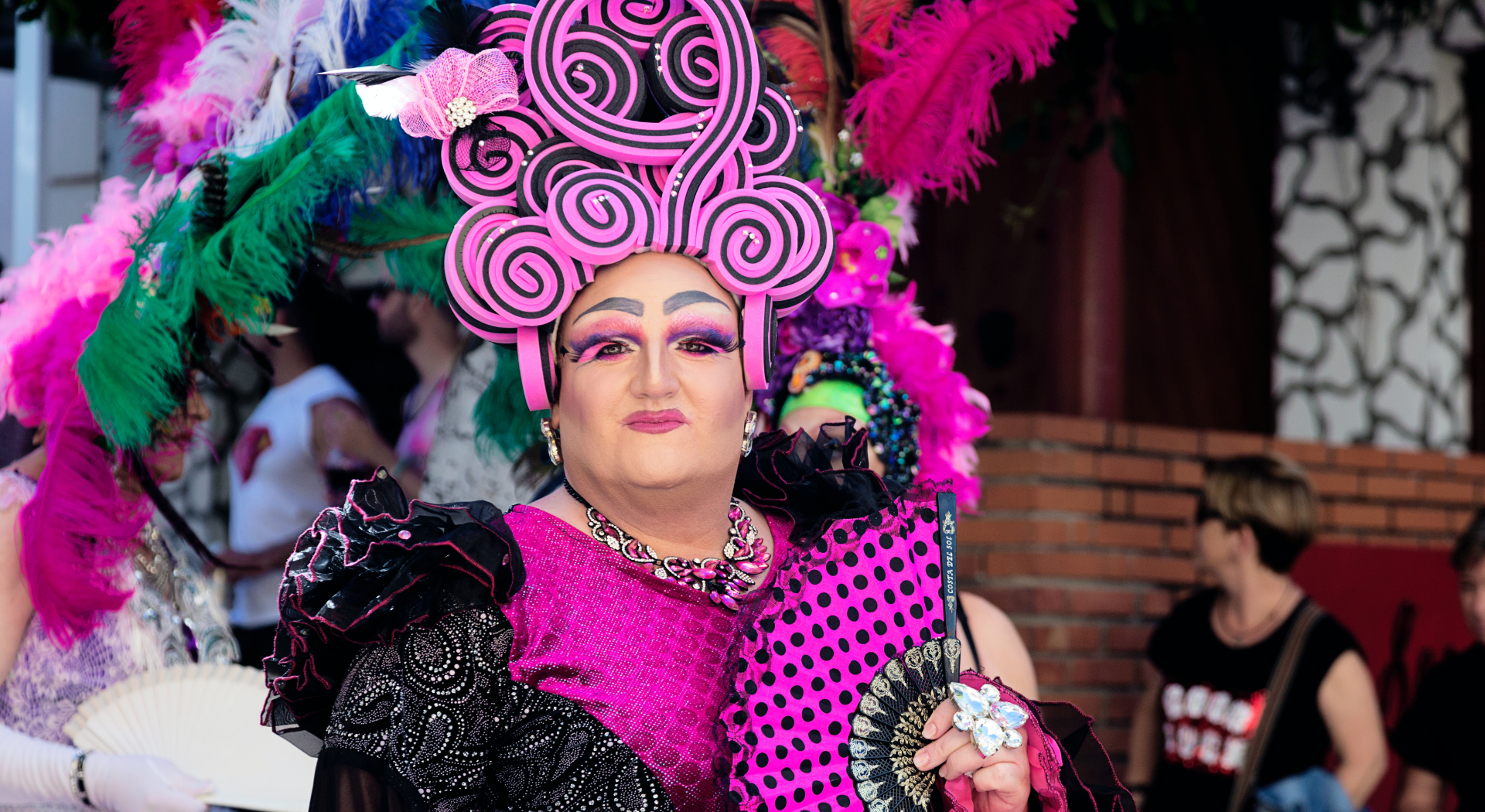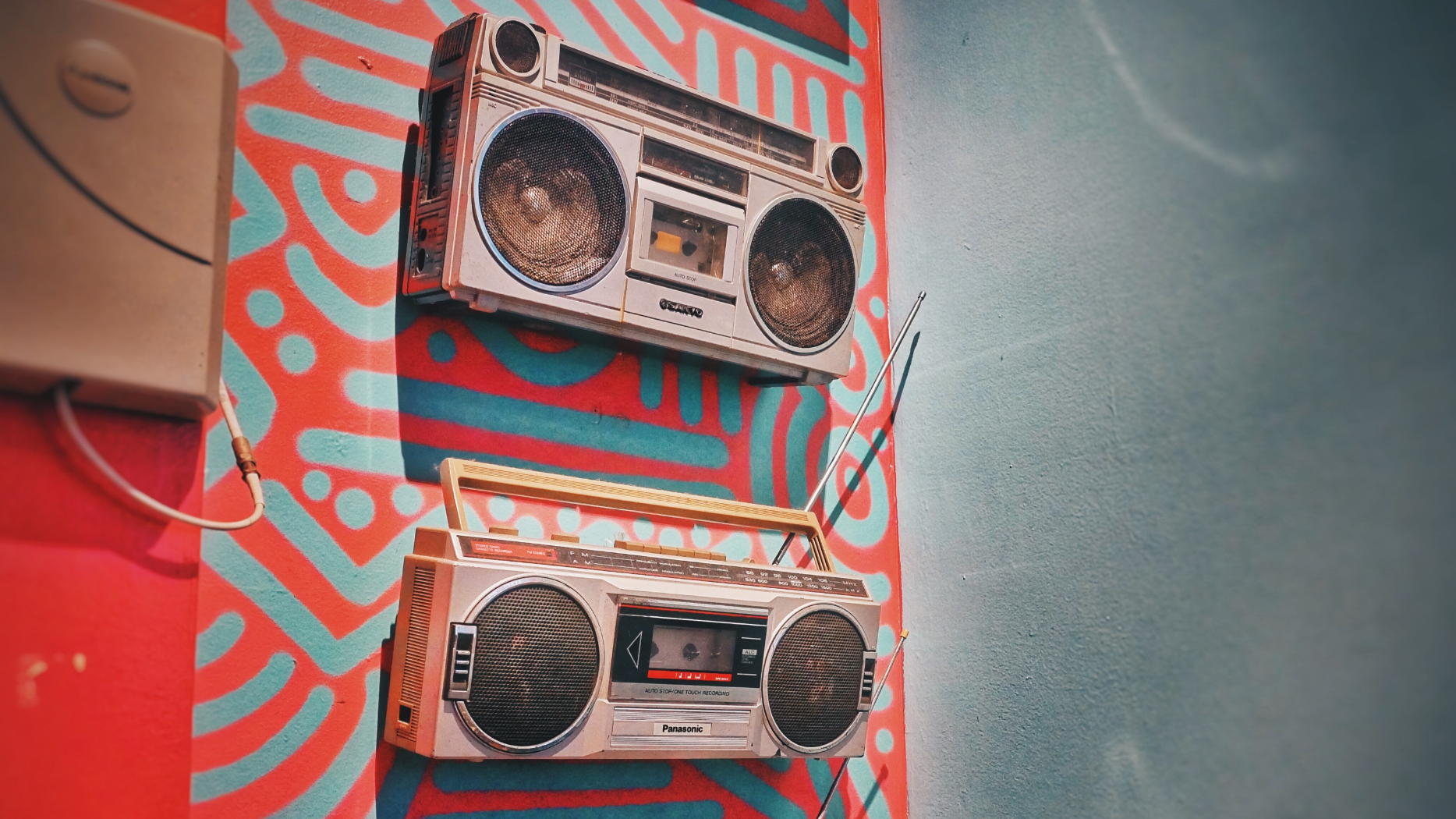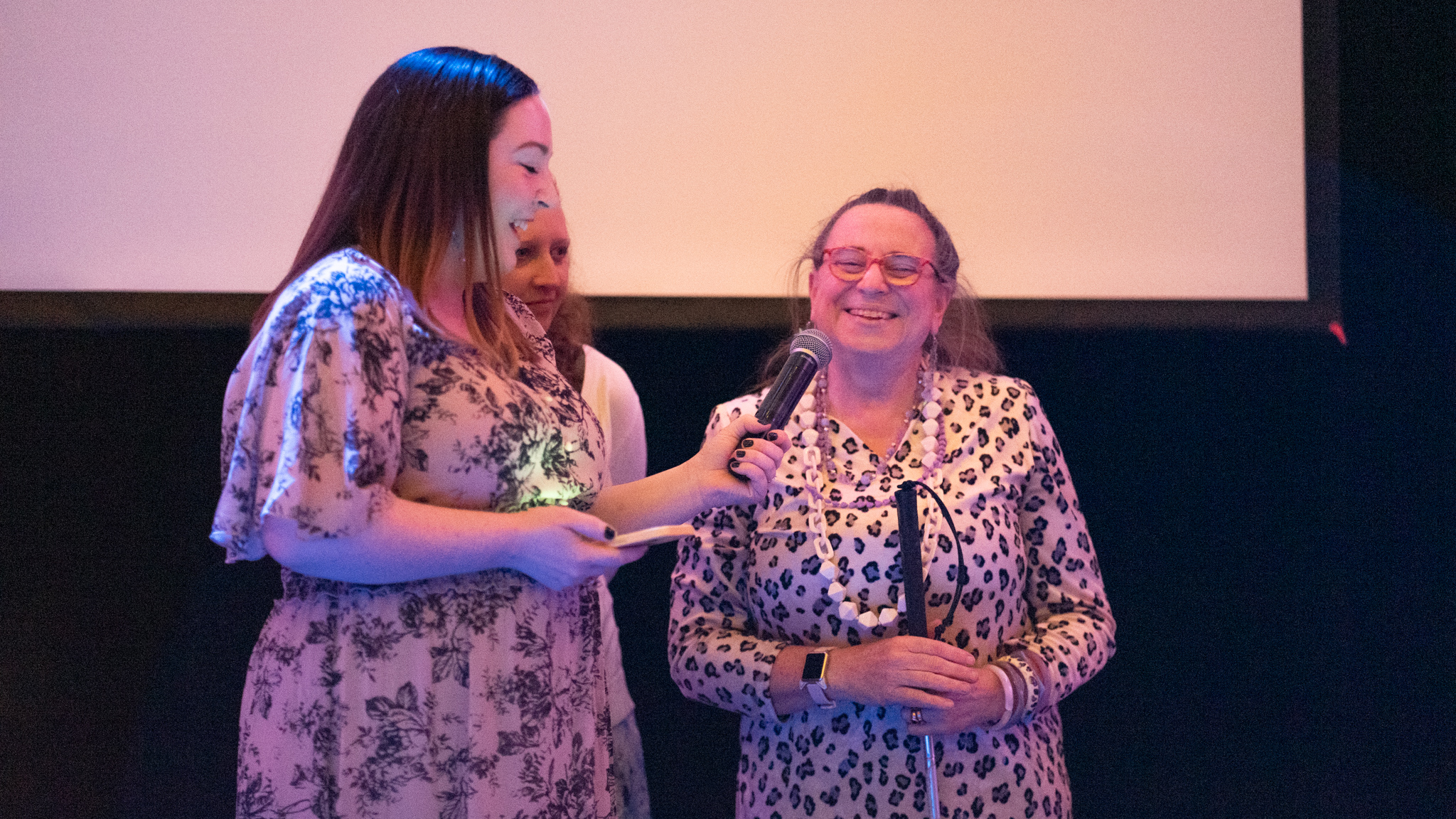DeVery Bess has always been a performer, but it took a special person to pull them out of the mainstream theatre world—which was riddled with obstacles—and into the bright lights and loving embrace of drag. Now, they’re opening the door for National accessArts Centre (NaAC) artists to explore cabaret, and develop their personal story and performance skills along the way.
“I really liked performing arts,” says DeVery. “I really liked being on stage, but I wasn’t given a lot of opportunities because the roles that I would have liked to engage in and play with weren’t accessible.” This was a time when female actors played female characters and male actors played male characters. And that didn’t sit well with Dev.
Thankfully, a staff member they had met at Laser Quest—their favourite hangout and hideaway spot—introduced DeVery to the idea of drag. Together, they went to a production meeting for an upcoming performance and Dev pitched an act. The producers didn’t bite, but they did promise Dev a spot in the show next year. They were hooked, and a star was born.
“In drag, you can create and control your narrative. You can do whatever you want. You can be a lava monster, a suave man, or some gender identity that doesn’t exist within this realm of consciousness. There are no rules to what drag is. It’s just joy, creativity, and connection.”
DeVery Bess
That’s exactly what DeVery hopes to bring to the Q.A.A.C. Summer Art Club as Program Designer. Throughout July and August, NaAC artists will have the opportunity to dip their toes into the creative waters of eight artistic disciplines. They’ll learn about movement, speech, and storytelling in a series of live and online sessions that center on performing arts. Each two-hour session will be led by a Calgary-based artist from the disability, MAD, Deaf, and Queer communities.
“Whether or not the artists themselves identify as Queer is not important,” says Talia Potter, Manager, Performing Arts at the NaAC. The Q.A.A.C. Summer Art Club provides “a space where sexuality and gender, and the intersection with disability, can be explored in a safe and brave way.”
A lot of work has gone into making sure artists and facilitators alike feel comfortable in the program. To prepare for the program, the entire NaAC team participated in a three-part training series facilitated by the Centre for Sexuality. Over six hours of training, they learned about supporting sexuality and sexual health for people with disabilities; how to support an environment of LGBTQ2S+ inclusion at the NaAC; and what it means to be an engaged bystander.
“We’ve worked hard to deliver the message that the Q.A.A.C. Summer Art Club is a program for everyone,” says Talia. “No one is insisting artists explore or participate in anything they aren’t comfortable with, but everyone deserves an access point. Sometimes you need to be shown a door and given permission to enter a space, before you know it is there to explore.”
The Q.A.A.C. Summer Art Club runs from July 6 to August 28 and costs just $5 per artist per session. If fees are a barrier to participating, scholarships may be available.



